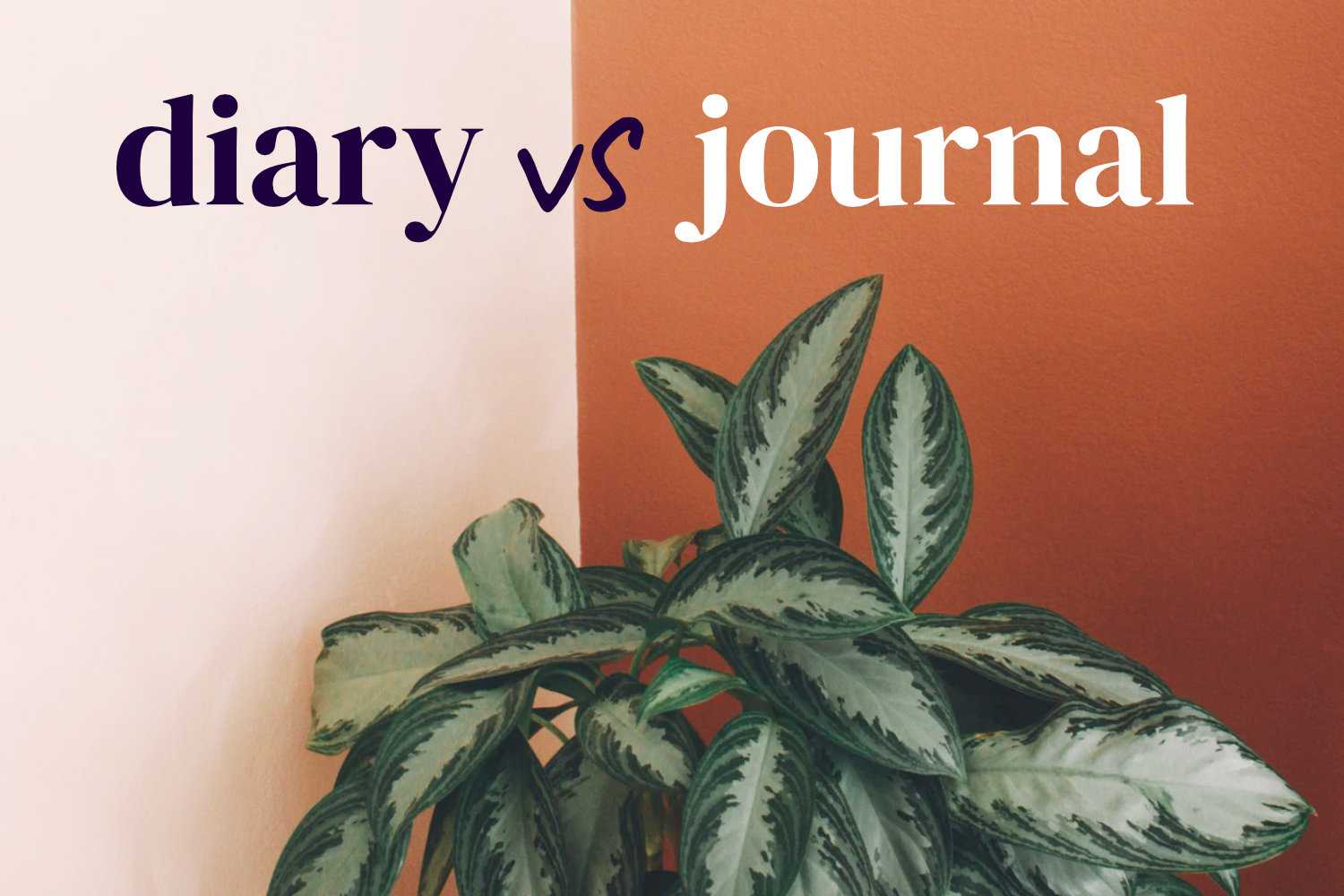Diary vs. Journal: Which Is Right for You?

We talk a lot about journaling — but do we really mean writing in a diary?
The terms diary and journal are often used interchangeably, but by some estimations, there are differences that could make one more suitable than the other for you. Understanding those differences and examining which set of defining factors most line up with your comfort level and intentions may help you be more successful within the practice of written reflection.
Here, we’ll look at the differences and discuss the purposes they could serve for you as you embark on a regular reflection practice.
What is a diary?
For me, the word “diary” brings up a very specific image. When I was a kid, I was given a “diary” as a gift. It was a small notebook with a gold lock on it. It came with a tiny key (which I of course kept losing). The common understanding of the word diary lines up with this lock-and-key memory: a diary is a place for one’s personal thoughts. Diaries often serve as a place for someone to write down, process, and record their deep thoughts and emotions about what is happening in their lives. For example, a diary entry might include a brief breakdown of the events of a day, how you feel about those things, and what your hopes are for the future with regard to those things.
What is a journal?
When we talk about a daily reflection practice done through writing, we typically use the blanket term “journaling.” By some estimations, though, a journal, like a diary, refers to a place for recording a certain type of thought. Whereas a diary is thought to contain more personal, immediate, and perhaps fleeting thoughts and emotions, a journal is thought to be a place where broader concepts are discovered, developed, and expanded upon. A journal may, for example, give someone the space to really explore, an expansive and evolving way, how parenting is affecting their relationship to their work, or how their relationship with their significant other is evolving, or challenges they’re experiencing in their personal journey. A journal can be thought of as a place to expansively explore concepts and themes.
What’s in a name?
Can we use the terms diary and journal interchangeably? Yes, definitely, and calling your own place where you collect thoughts and writing one or the other doesn’t have to change what you put in there. If you want to call it a journal but your preferred form of journaling is to jot down thoughts and feelings in a very deep, personal way that isn’t necessarily expansive, then by all means, go for it! Journals and diaries are both very personal things. It’s really no one’s business what you call it or what you put in it.
However, understanding the differences between the two terms could help you define for yourself what it is you want to achieve in your own reflection practice. Some people aren’t aware that there even are two terms or that there are distinct approaches to how journaling, diary writing, or other forms of written reflection manifest. Understanding that there are different methods and techniques that you can apply may also inspire you to take stock in what you think would work for you, and that may in turn help you establish a regular journal or diary-writing practice that achieves the ultimate goal of what both have to offer: mindfulness.
Whatever name you give to the habitual practice of writing down thoughts, events, and growth, the practice has the potential to bring positive effects into your life by giving you space to release, reflect upon, and acknowledge your own feelings and thoughts. For many people, one of the most surprising things about a new journaling practice is the feelings of residual relief and calm that come from not just getting thoughts out of one’s mind and onto a screen or paper, but seeing those thoughts for what they are — real, tangible things that one can sit with. This is one of the tenets of mindfulness: acknowledging your thoughts as things that come and go and seeing them for what they are and how they affect you emotionally. It’s by doing these things that we are able to more gracefully wade through and navigate our thoughts and emotions and understand how they relate to our outward behaviors and relationships.
In conclusion
What do you think? Is your journal a diary? Your diary a journal? Do you find yourself constructing a hybrid of the two? No matter what you do, techniques can help you create a regular practice of written reflection. Those techniques include daily writing, using writing prompts, and not limiting yourself in terms of what you want to write about. In time, you’ll find yourself craving your journaling time (or time writing in your diary!) the way you crave your cup of coffee in the morning. It’s a form of self-care, that gets you ready for whatever comes next.
